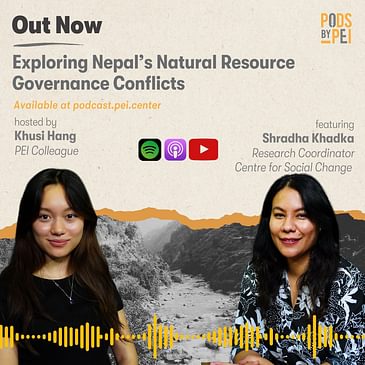This episode features Shradha Khadka on Exploring Nepal’s Natural Resource Governance Conflicts . Shradha is the Research Coordinator at the Centre for Social Change (CSC) focusing on Nepal's natural resources, climate governance, and environmental peacebuilding. Recently, she co-authored an article titled "Understanding the Interrelations Between Natural Resources and Development Governance in Federal Nepal." She has a Master’s in Humans and Natural Resources from Kathmandu University.
Khushi and Shradha discuss historical and contemporary conflicts concerning natural resource governance in Nepal. They focus on the significant shifts brought by Nepal's transition to a federal structure, the challenges of a centralized mindset, and the lack of clarity in roles among federal, provincial, and local levels. Shradha also explains key governance conflicts, environmental and human-wildlife security impacts, and her research on the Resource Curse theory.
If you liked the episode, hear more from us through our free newsletter services, PEI Substack: Of Policies and Politics, and click here to support us on Patreon!!




